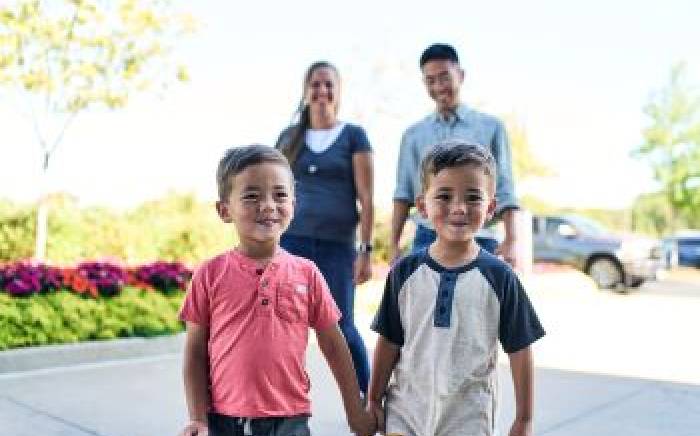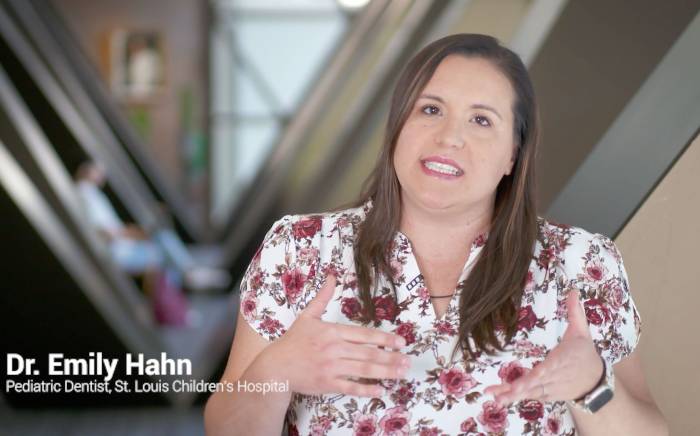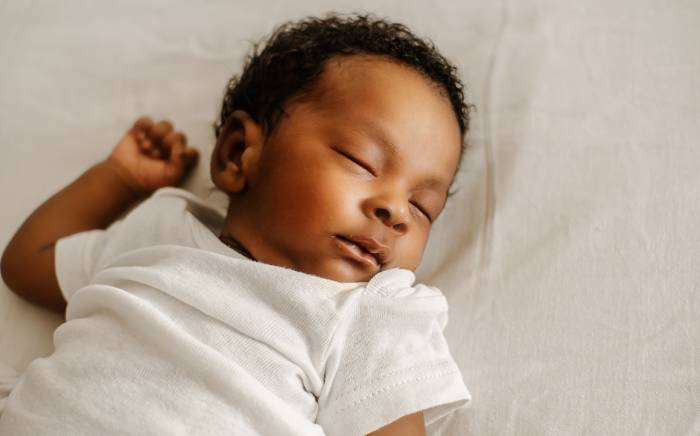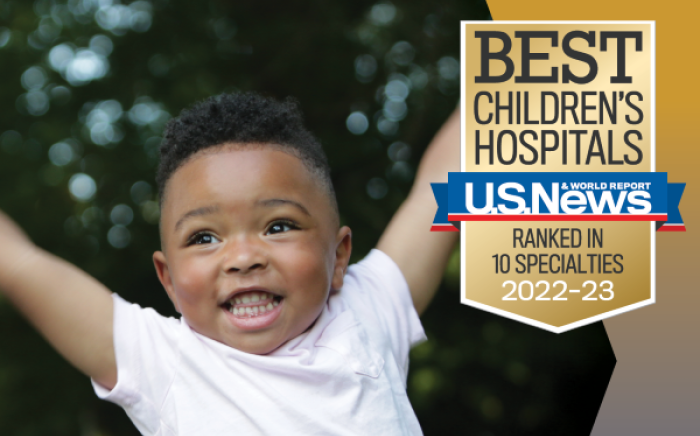 The St. Louis Children’s and Washington University Heart Center is committed to ensuring that families have the necessary support both medically and emotionally that they need when a baby has been diagnosed with a heart defect.
The St. Louis Children’s and Washington University Heart Center is committed to ensuring that families have the necessary support both medically and emotionally that they need when a baby has been diagnosed with a heart defect.
Upon diagnosis, whether prenatally or following the baby’s birth, Heart Center patients and their families are provided care through a continuum of services, that can include the Fetal Heart Center, High Risk Cardiac Infant program, Cardiac Neurodevelopment and the most recent addition, the Perinatal Behavioral Health Service.
During this time, many families, like Latoya's, pictured above, experience feelings of anxiety and worry that can be overwhelming. To help provide additional emotional support as they navigate their baby’s care, the Heart Center provides a dedicated therapist to parents through the Perinatal Behavioral Health Service team at Washington University. Families are typically referred to the program by obstetricians, nurse coordinators and social workers.
“While pregnancy can be a wonderful time for families, when a baby is experiencing a medical complication such as a congenital heart defect, there can be additional stress that families were not anticipating,” says Lauren Weir, MA, LPC, staff therapist. “Every time a family is diagnosed during pregnancy, that referral comes to me so I can reach out to families and use an evidence-based tool to screen mom for perinatal mood and anxiety disorders.”
a baby is experiencing a medical complication such as a congenital heart defect, there can be additional stress that families were not anticipating,” says Lauren Weir, MA, LPC, staff therapist. “Every time a family is diagnosed during pregnancy, that referral comes to me so I can reach out to families and use an evidence-based tool to screen mom for perinatal mood and anxiety disorders.”
She is then available to follow them through the rest of their pregnancy and the postpartum period, when most of these babies are hospitalized.
Weir often meets one-on-one with moms either in the hospital setting, an outpatient clinic and/or by phone when needed. She also provides support for any family members and other caregivers, if needed.
For example, when Kaylee Prestien of Springfield, Mo., learned at 22 weeks that her daughter, Lilia, would be born with a single ventricle heart defect, she says it felt like her “world fell out of her body.” Already the mom of a young son born in 2017 with medical complications, Prestien says she was overwhelmed with the news.
Because she knew her children would require extensive medical care, Prestien and their father, Nicholas, moved to St. Louis to be closer to both Barnes-Jewish Hospital, where she delivered Lilia on Oct. 2, 2018, and St. Louis Children’s Hospital.
“I began seeing Lauren regularly before and after Lilia was born and continue to see her,” she says. “It’s important for me because all of my family lives in Springfield. Having someone like her who understands what it is to go through something like this and can help put the pieces together and bounce your thoughts off of has been abundantly helpful.”
Weir encourages families to understand the importance of mental health during this time. There is often added stress for mom, whether this is a first-time pregnancy or there are other children at home, as well as sleep deprivation and increased responsibilities both during pregnancy but particularly after the baby is born.
“I want parents to understand the importance of taking care of themselves — whether it is finding time to be alone even for a half-hour in another room, getting into a sleep routine and making healthier choices when it comes to eating and exercise when possible,” Weir says. “The analogy I often give is when you are on an airplane and they encourage you to put on your own mask first before you can help anyone else. We care very much about our patients, and we want to make sure we are caring for the whole family.”
The Perinatal Behavioral Health Service provides support for moms and family members who may experience:
- Postpartum depression
- Stress, anxiety, worry
- Sleep deprivation
- Increased responsibilities
- Balancing the needs of baby and other family members
To speak with a staff member at the Perinatal Behavioral Health Program, or to refer a patient, call Children’s Direct at 800.678.HELP (4357).








